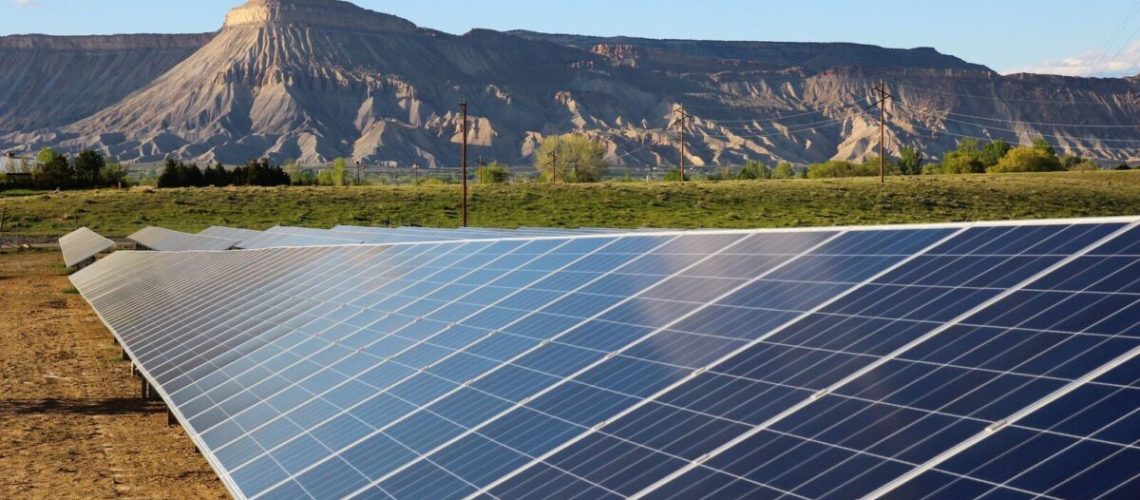Governor Polis signed into law bipartisan legislation that launches a new dispatchable distributed generation program and leverages Solar for All funding to upgrade its grid, lower energy bills for all and promote energy equity.
With his signature on SB24-207, Governor Polis signed into law legislation intended to modernize the state’s community solar program, start a new dispatchable distributed generation program, upgrade the power grid, and promote energy equity.
Colorado was awarded a $156 million grant from the EPA’s Solar for All program to provide loans and incentives for community solar development, including directly funding community solar projects in the state, helping to deliver lower utility bills, create jobs, and expand the benefits of solar to low-income and disadvantaged communities.
One of the major benefits of community solar is it opens access to customers that may not have a suitable roof or financial situation for rooftop solar. It allows residents, businesses, organizations, and municipalities to subscribe to a portion of a solar asset’s electricity generation to receive credit on their electricity bills for the power it generates.
The Solar for All program is one of three grant programs under the Greenhouse Gas Reduction Fund created by the Inflation Reduction Act. EPA intends to design the grants competition to “maximize impact toward” that fund’s objectives, namely reducing greenhouse gas emissions and other air pollutants, delivering program benefits “particularly” to low-income and disadvantaged communities, and mobilizing financing and private capital.
The DOE estimates that the average low-income household benefiting from this program will save around $400 a year on their electric bills; collectively that’s over $350 million in annual household savings from all 60 selected applicants, totaling over $8 billion in cumulative savings for over a standard solar project 25-year asset life.
“All Coloradans, regardless of income level or homeownership status, should be able to participate in the transition to renewable energy,” said Senate President Steve Fenberg, sponsor of SB24-207. “With the signing of this bill, we have taken a major step to remove barriers to accessing solar energy — like homeownership or credit score requirements — to ensure renters, non-profits, and small businesses can take part without breaking the bank.”
Colorado was the first in the nation when, in 2010, it passed pass legislation “truly enabling” a third-part community solar model, according to Kevin Cray, Mountain West
“It was time for an upgrade. Today’s action by Gov. Polis will reinvigorate Colorado community solar, positioning the state to regain its leadership position in providing equitable clean energy options for customers,” said Cray.
The new law is expected to deliver the following benefits:
- Deliver meaningful bill savings of 25-55% to thousands of additional income-qualified Colorado households;
- Reserve at least 51% of each community solar project for income-qualified residential subscribers;
- Enhance subscriber experiences with best-in-class enrollment methods, consumer protections, and consolidated billing;
- Prioritize projects sited on preferred locations, like rooftops and brownfields, and drive dual-use practices, such as agrivoltaics; and
- Improve the methods that third-party stakeholders use to develop community solar projects with investor-owned utilities.
“This law is a reflection of the state’s ongoing commitment to ensure an equitable clean energy transition and to leverage local energy resources to create a cost-effective and resilient grid,” said John Bernhardt, Vice President of Policy for Pivot Energy. “As a Colorado-based company, we are proud of our state’s leadership and stand ready to help realize the goals of SB 24-207.”
Organizations and advocates including Vote Solar, Nature Conservancy, Grid Alternatives, Colorado Solar and Storage Association, among others, are optimistic about the opportunities presented by this legislation.



